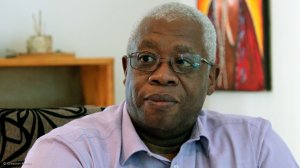At the memorial service for former President Nelson Mandela, a section of the crowd booed President Jacob Zuma. At the end of last year, former Tourism Minister Derek Hanekom stood up at a meeting of the national executive committee (NEC) of the African National Congress (ANC) and proposed a vote of no confidence against the President.
There is now a wave of mass protests in support of the call for Zuma to step down, with an increasing number of ANC stalwarts supporting the call for Zuma to step down as head of State. At the May Day celebrations, in Bloemfontein, an event that was organised by the Congress of South African Trade Unions (Cosatu), Zuma was prevented by workers from delivering his speech, and the entire event collapsed. As if this was not enough, a few days later, a court ruled that Zuma had to hand over to the court documents that informed his Cabinet reshuffle.
A decade ago, Zuma was riding the crest of a wave of popularity. Cosatu, the South African Communist Party (SACP) and the ANC Youth League constituted the core of the coalition that led the rebellion against former President Thabo Mbeki in support of Zuma. Julius Malema, Blade Nzimande and Zwelinzima Vavi were three of the pre-eminent figures who threw their weight and more behind Zuma. Cosatu and the SACP are now calling on Zuma to resign as President of the country, and Vavi is now the general secretary of the South African Federation of Trade Unions, a rival labour federation to Cosatu.
How did matters come to this?
First, as they say, there is a thin line between love and hate. There is a very thin line between sycophancy and hatred. Since political support, like friendship, is a function of contextual bonding, political loyalties may change into political enmity with a change in what previously were common political interests. This is what happened between Zuma and former staunch allies like Nzimande, Vavi and Malema.
In part, this happened because Zuma wields power in concentric circles. Therefore, there was a time when each of his staunch allies thought he or she was part of the inner circle, only to discover later that he or she was either never part of the inner circle or was always part of one of the peripheral circles. In other words, and to the extent that sharp ideological and political tensions had developed within the tripartite alliance because of tensions between Mbeki and the ANC’s allies on the left, Cosatu and the SACP needed Zuma and, in him, created a political figure in contradistinction to Mbeki. They even created a left-wing revolutionary figure out of Zuma and this phantom of left-wing politics would, unlike Mbeki, take the ANC away from its neoliberal path. Zuma was supposed to be a political instrument of the left, a means to an end. But they were the means to Zuma’s ends.
Also, under Zuma, the alliance was destined to become the strategic centre that would dictate the political, ideological and policy content of the postapartheid State. In 2010, Zuma told the National General Council of the ANC that the ANC, not the alliance, was the strategic centre. Again, Zuma allies discovered that they were not as central to his vision as they had assumed. Zuma had been captured, but not by Cosatu and the SACP. Malema, Nzimande and Vavi failed to capture Zuma; he captured them. So, as they say, hell hath no fury . . . Well, you know the rest.
But all this is not the main reason why Zuma finds himself in trouble. His political misfortunes lie in the fact that he has become a metaphor for all things corrupt, venal and lacking in probity. Unlike his predecessor, the forces of the rebellion against him are located inside and outside the ruling party. His political fortunes have turned for the worse because of the perception that he is the worst leader of the ANC ever and the worst President of the country since the advent of democracy in 1994.
His Presidency of the country has coincided with a process of unravelling at institutional, moral, ethical, organisational, policy, strategic and other levels. The erosion of institutional, policy, political and economic certainty has reached proportions that were last seen during some of the darkest days of white minority rule.
My suspicion is that portions of the country, the State, national resources, State security and the national interest have been sold to groupings – political and economic, including those that were dominant during apartheid and those of a transnational character – whose interest in our democracy extends only to the desire to loot as much of our national resources as possible. While Zuma did not invent these parasitic tendencies, they have become more pronounced during his Presidency.
Edited by: Martin Zhuwakinyu
Creamer Media Senior Deputy Editor
EMAIL THIS ARTICLE SAVE THIS ARTICLE
ARTICLE ENQUIRY
To subscribe email subscriptions@creamermedia.co.za or click here
To advertise email advertising@creamermedia.co.za or click here












